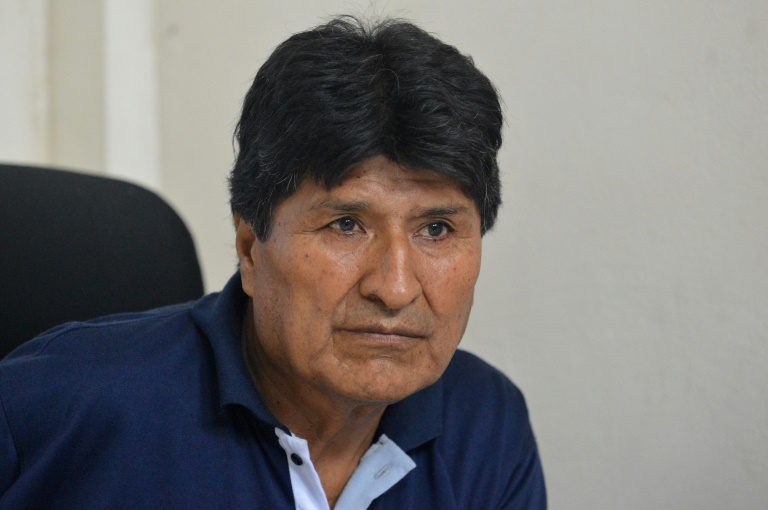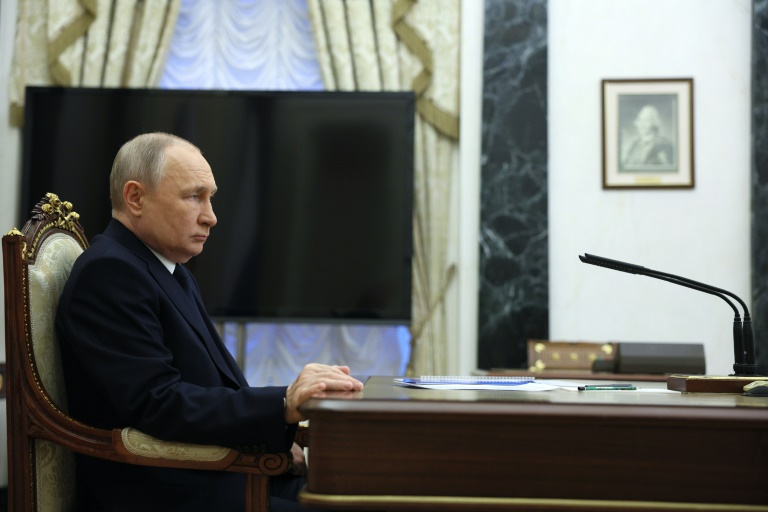AFP
Thousands of Israeli protesters crowded railway stations and blocked roads on Tuesday in the run-up to a parliament vote on the government’s judicial reform agenda opponents say would “dismantle democracy”.
The proposals have divided the nation and triggered one of the biggest protest movements in Israel’s history since being unveiled in January by the hard-right government of Prime Minister Benjamin Netanyahu.
Weekly rallies have drawn tens of thousands of protesters aiming to prevent what they believe could pave the way to more authoritarian government.
Crowds gathered early Tuesday in the coastal city of Tel Aviv, Israel’s commercial hub, after organisers had called for a “national day of resistance” ahead of a planned vote by lawmakers on a key clause later this month.
Demonstrators holding Israeli flags and chanting “democracy, democracy” marched on highways and bridges, and blocked several roads as well as an entrance to the military’s headquarters in Tel Aviv, AFP correspondents reported.
Many, wearing hats to protect from scorching heat, chanted slogans on loudspeakers and beat drums.
Opponents of the government’s reforms also entered the stock exchange building in the city and staged a rally there.
Later on Tuesday protesters gathered at several railway stations in Tel Aviv and other cities including Haifa, Herzliya, Beersheba, and Binyamina, chanting “Israel is not a dictatorship”.
Hundreds managed to overcome police deployed to stop protesters from taking to railway platforms.
Protester Inbal Oraz said the timing of the protest was “critical” before parliament breaks for summer recess on July 30.
“This month is critical and this week is critical, because in less than a week we will know if this first law of this package is going to pass,” the tech consultant told AFP.
“We are doing our best to fight and stop it.”
Protester Ron Sherf, 51, vowed to continue challenging the government.
“The government wants unlimited power to implement a policy that is not liberal, a policy of Jewish supremacy and a religious state,” he said.
Hundreds also staged a rally near the Supreme Court in Jerusalem on Tuesday evening.
“We want to keep the pressure on this government. We won’t give up until they listen to us,” said protester Lior, who only gave his first name.
Police said they had arrested at least 45 protesters for violating public order.
The government temporarily paused the divisive legal overhaul in March in the wake of a general strike.
But in recent weeks it launched a new political offensive to pass the package in parliament.
Parliament is due to vote on a measure to limit the “reasonability” clause, through which the judiciary can strike down government decisions.
Ahead of Tuesday’s protests, organisers said in a statement it was the “citizens who can stop the train of dictatorship”.
Lawmakers adopted the “reasonability” clause in a first reading last week.
If approved in second and third readings, it will become the first major component of the reform package to become law.
Other proposed measures include giving politicians a greater say in the appointment of judges.
The government, which includes Netanyahu’s ultra-Orthodox Jewish and extreme-right allies, says the changes are necessary to rebalance powers between elected officials and the judiciary.
On Tuesday, Netanyahu at a ceremony said the government was “committed to keeping Israel… democratic, free, and liberal, one that preserves the majority rule alongside individual rights”.
And at a meeting with US President Joe Biden in the White House, Israeli President Isaac Herzog reiterated his commitment to “always seek to find amicable consensus” on the legal reform legislation.
“I am pursuing that even in these very moments through my people as much as we can, in order to find solutions and exit out of this crisis properly,” he said.
Most recently, “reasonability” was cited by Israel’s top court to force Netanyahu to remove a cabinet member over a previous tax evasion conviction.
Critics accuse Netanyahu, who is on trial on corruption charges he denies, of trying to use the reforms to quash possible judgements against him.
He rejects the accusation.
The proposed reforms have also drawn international criticism, including from key ally Washington.
In a recent CNN interview, US President Joe Biden said he hoped Netanyahu would “continue to move towards moderation” but acknowledged that the current Israeli cabinet was “one of the most extremist” he had seen.
In a telephone conversation on Monday, Biden invited Netanyahu for a visit to the United States later this year, according to a statement from the Israeli leader’s office.

AFP







